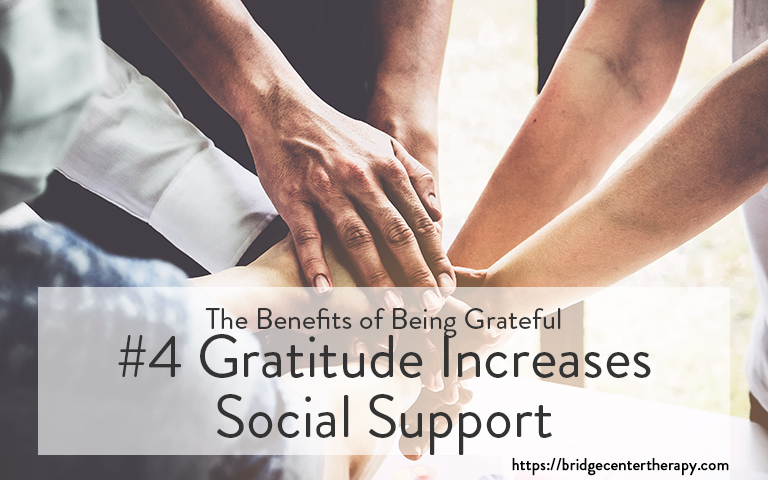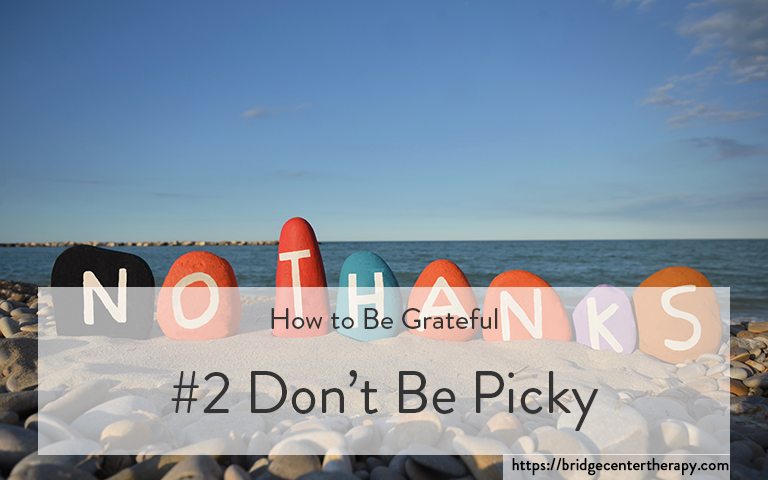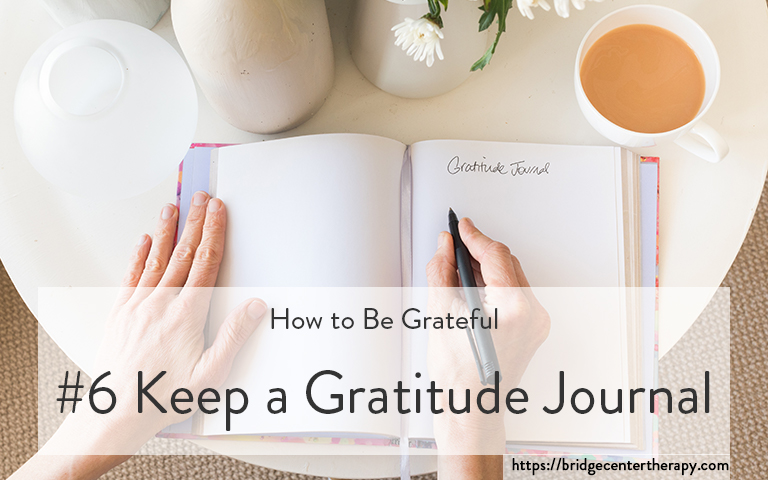
It can be easy to get swept away and forget to stop and show appreciation for what you have. But, gratitude is literally as easy as saying “thank you”. Yet, it is something you intentionally need to focus on. Mentally strong people choose to exchange self-pity for gratitude.
Gratitude helps you feel more positive emotions, relish good experiences, improve your health, deal with adversity, and build stronger relationships. There are many mental and physical benefits.
Speak to one of our therapists today.
Benefits of Gratitude
1- Gratitude Improves Self-Esteem
Studies have shown that gratitude reduces social comparisons. Rather than becoming resentful toward people who have more, grateful people appreciate other people’s accomplishments
2- Gratitude Improves Physical Health
You will be more likely to take care of your physical health and you may also be more likely to attend regular check-ups. Grateful people also report less aches and pains.
3- Gratitude Enhances Empathy and Reduces Aggression
You may behave in a more prosocial way, even when others are less kind, if you have a regular gratitude practice. You will experience more sensitivity and a decreased desire to seek revenge.

4- Gratitude Increases Social Support
You will have more access to support from other people. Grateful people are happy people and happiness and positivity are attractive qualities. It will also lessen your need for social support in difficult times.
5- Gratitude Opens the Door to More Relationships
A simple thank you constitutes good manners. This appreciation can also help you win new friends. So, acknowledging other people’s contributions lead to new social opportunities.
6- Gratitude Can Help You Cope Through Emotional Trauma
It can alleviate some of the pain and symptoms of PTSD and depression. As long as you can remind yourself that you are grateful for breathing, you can get through difficult situations.
7- Gratitude Can Help Reduce Stress
When you’re in a stressful situation and you are able to refocus your attention and energy, you can calm both your mental and physical symptoms of stress.

8- Gratitude Helps You Sleep Better
When you are not ruminating, it is easier to get a good night’s rest. By spending 15 minutes on grateful sentiments before bed, you may sleep better and longer.
9- Gratitude Can Help Ease Depression
Exercises such as consistently naming three good things that happened throughout your day will help you increase your overall happiness and decrease depression symptoms.
10- Gratitude Gives You Happiness That Lasts
It is not based on immediate gratification. It is a frame of mind. Unlike little bursts of joy, gratitude leads to much more sustainable happiness.
How to Practice Gratitude
Notice the thank you’s you say. Just how much of a habitual response is it? How are you feeling when you express thanks? Are you already moving on to your next interaction, or are you present in the moment?

Appreciate everything. There is nothing too small for you to be thankful for. Even something as simple as the clear weather is important. Don’t leave anything out.
3- Find Gratitude in Your Challenges
It’s not only about your positive experiences. In fact, thinking about negative or difficult situations can help you really nail down what you have to be thankful for.
The greatest obstacles to gratefulness is forgetfulness and lack of mindfulness. Visual reminder can be cues to trigger thoughts of gratitude. People are good visual reminders.
Grateful motions include smiling, saying thankyou and writing letters of gratitude. This helps you trigger the emotions behind gratitude more often.

It involves directing your attention to 3-5 things that happened during your day and writing them down. The act of writing helps you focus. It is also a record you can use as a reminder on days when you feel less grateful.
7- Meditate
Mindfulness meditation involves focusing on the present moment without judgment. Now focus on what you are grateful for.
Notice new things you are grateful for every day. Get specific. Opening your eyes to more of the world deeply enhances your gratitude practices.

Don’t limit yourself. If journaling is feeling stale, don’t be afraid to try out new and creative ways to track your grateful moments.
10- Allow Yourself to Be Human
Grumble if you must. Miss a day here and there. But, beware of the little voice in your head that says you failed because you missed one day. Ignore it.
Need Help? We Can Help.
It may not feel particularly natural or good at first. It may feel forced. You might feel like you have to dig really deep some days. But, it’s all part of the practice of gratitude. Making space for appreciation can positively affect you physically, mentally and spiritually and these effects add up over time.
Do you need help? Call (510) 497-4174 today to schedule your free consultation with one of our Berkeley Counselors.
If you have any questions or require more information, please contact Lani here: lani@bridgecentertherapy.com
